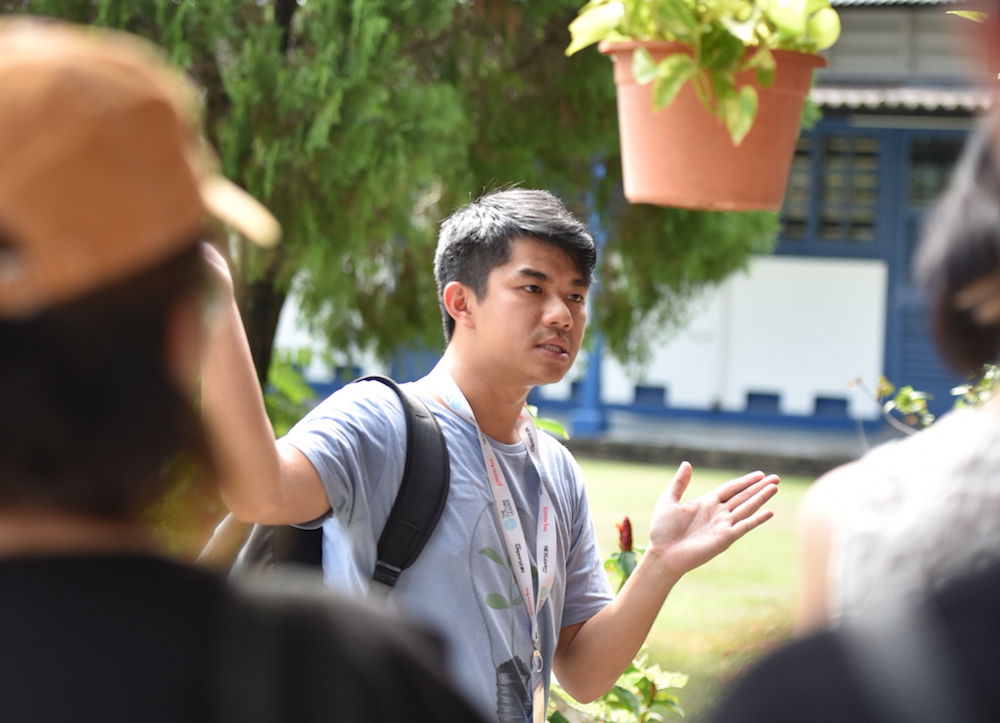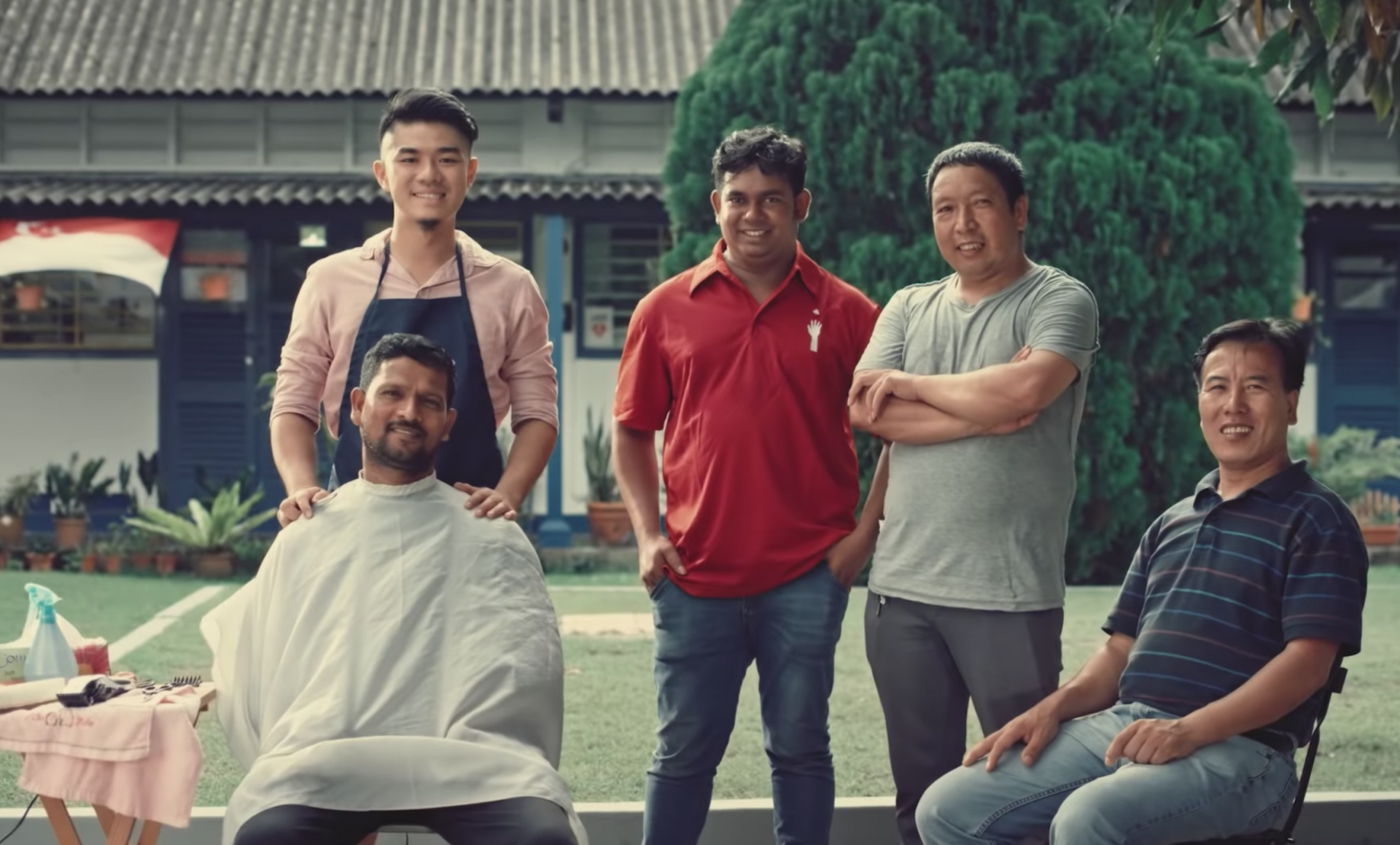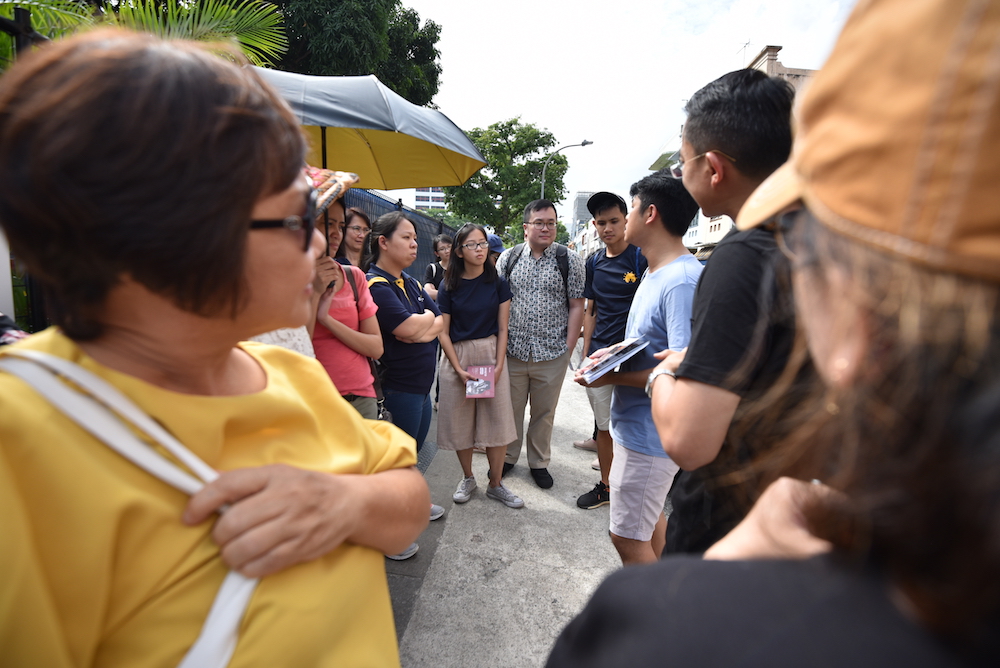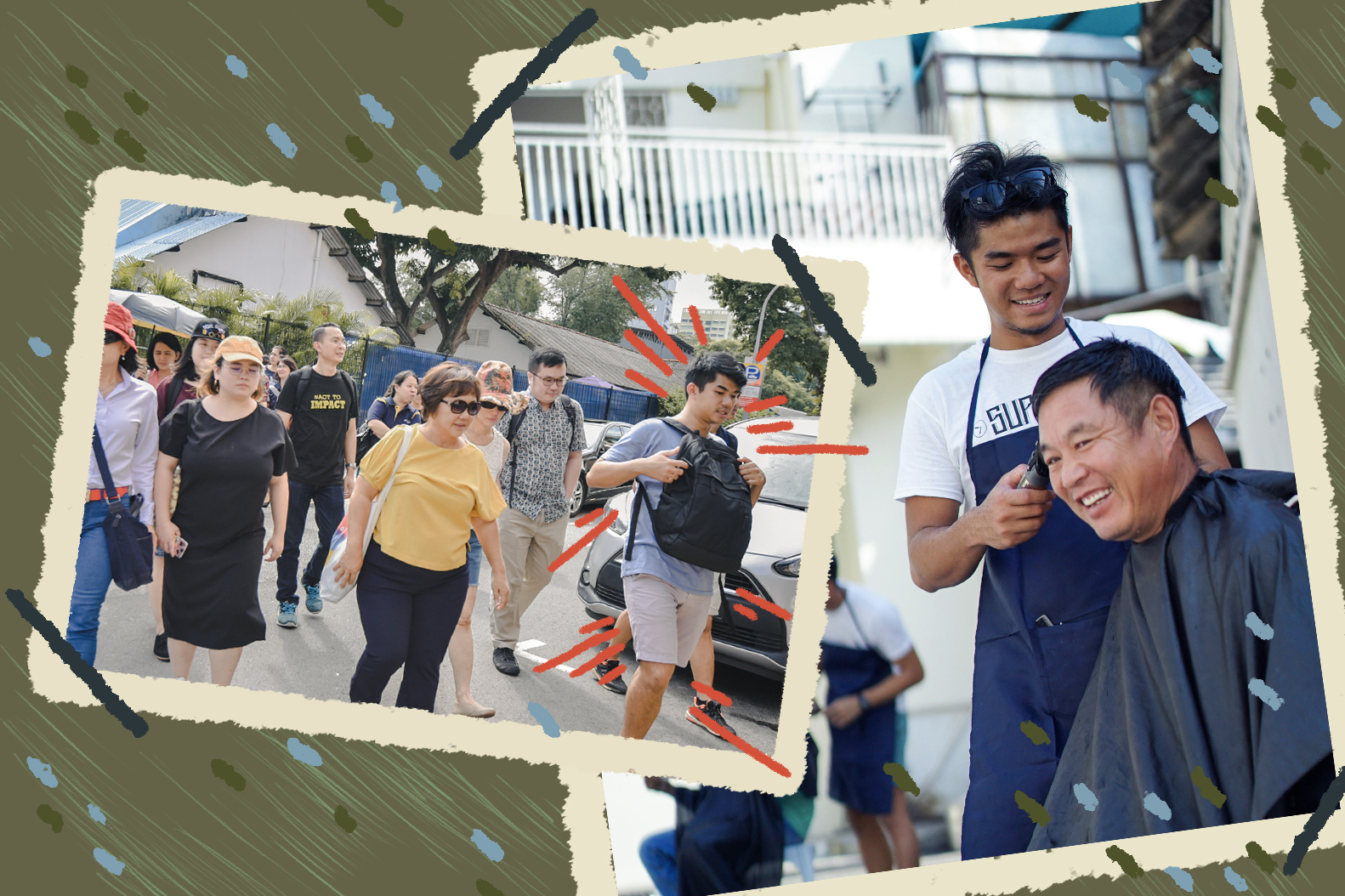“Who’s Yinzhou?” I asked in a newly formed chat group of social activists and do-gooders back in early August 2015. Someone had pointed out to me that he was in the group.
“I’m the Geylang guy,” he replied, just after some others had kindly enlightened me that he was the man behind Geylang Adventures. “Nice to e-meet you!”
It was only four years later, almost to the date, that we would finally meet each other for a real-life conversation during the learning journey he recently conducted for the Eagles Leadership Conference (ELC) 2019.

Today, Geylang Adventures continues to be in the media eye, with Cai Yinzhou featuring in last year’s official National Day video together with his migrant worker friends, in honour of his pioneering initiative, Back Alley Barbers (BAB), which gives free haircuts to migrant workers.
Even at the time of our very first digital meeting, it would have been safe to say that many Singaporeans would have heard of Geylang Adventures after its well-received feature in The Straits Times, even if we didn’t know the name of the 24-year-old who had singlehandedly challenged the narrative of the neighbourhood.
SHINING A DIFFERENT LIGHT ON GEYLANG
Having grown up in the infamous red-light district of Singapore, Cai saw a very different side of Geylang than most locals would care to stick around to discover.
Playing badminton with migrant workers in the back alleys near his home and living next door to sex workers was his normal. Before BAB, he was the back-alley barber who had learnt to cut hair for his foreign friends who couldn’t afford regular haircuts.

It was when the opportunity unexpectedly arose in the form of a school project for one of his university modules that Cai decided to share this “normal” with the world: He invited the outside world on a tour to see the Geylang they never knew. This tour would soon develop into what we now know as Geylang Adventures.
“I just had friends who were different from me,” Cai shared, in reference to his migrant friends from the neighbourhood. “And friends who were different from me in terms of how they were exposed to ‘normal’ neighbourhoods.” The latter are his schoolmates and those he calls “normal people in the heartlands”.
“I just linked them both together.”
Now 29 years old and five years wiser from that first tour, Cai has turned Geylang Adventures into an incorporated organisation, Citizen Adventures, consisting of two main tours, Geylang Adventures and Dakota Adventures, which fund the work, and a number of volunteer-run initiatives such as Back Alley Barbers, Migrant Mail and Majulah Belanja.
Their key focus this year is on taking Back Alley Barbers to the next level, after newly discovering needs they “never knew existed”, such as caregivers for the homebound who find it difficult to bring their charges out for a haircut, and even barber shops run by older folk who are unable to hire help and face foreseeable closure.
For the former, they now have a “BAB mobile” that goes directly to people who have less mobility. As for the latter, Cai hopes to train up an army of haircutting volunteers that might even include youth-at-risk and persons with special needs to help these older barber shops.
SEEING THE HUMANITY BEFORE THE MORALITY
Much like the neighbourhood he spent his youth serving, Cai is a curious blend of cultures himself. On one hand, he is easy-going and relaxed, dressed in a T-shirt, shorts and slippers when I met up with him at the learning journey he was conducting for ELC 2019.
But as we listened to his philosophies on the social ecosystems of a place like Geylang and how we can influence attitudes in society towards the marginalised, it was clear that his efforts had been driven very much by head as well as heart. The man just finished his master’s in tri-sector collaboration at SMU.
And despite years worth of media coverage – he’s one of the faces of VisitSingapore and even won the Singapore Youth Award in 2017 – my question from 2015 still stands: “Who’s Yinzhou?”
Who is he without Geylang Adventures, and why does he care so much?
Born to Christian parents and raised in 1990s Geylang, Cai describes himself as a “kaypoh person as a child”.
“I would talk to people very different from me,” he shared. “I would hang out with the Normal (Technical) students for the first half of break and play netball with the girls for the other half.
“I just had very different interests in people.”
At home, this was further developed with the variety of characters he would cross paths with, although his parents never encouraged it.
“My neighbours were sex workers. When I was older, I met one of them in the lift and she showed me a picture of her son, whom she said was about my age. We just chatted,” he recalled.

It was these experiences that would give one an important clue to social integration and above that, the call to “love thy neighbour”, all embodied in one boy’s life.
“The principles behind the morality (of what they were doing) didn’t affect me,” Cai continued. “It was knowing them first before I understood what (their job) meant.” And for most, the motivations behind the less-savoury job choices were usually for a better life, not just for themselves, but also for their families back home.
In the story of the Good Samaritan, which Jesus uses to illustrate loving one’s neighbour, this same truth is exemplified: Only one man saw the humanity of the wounded man and was willing to do all he could to help him. The others only saw the trouble it would cost them to handle his mess and passed him by on the other side (Luke 10:25-37).
WHAT ARE WE WILLING TO DO FOR LOVE?
If he could convert every “good job” he got from others as a response to his work to a dollar, he would be very rich, Cai said, as we sat down for drinks at one of the coffeeshops serving authentic Bangladeshi food. But he wishes people would take time to understand the “why”.
“It’s really just to create new models of living. Faith is one motivation… Beyond that, it’s questioning the status quo.
“How different things could be if we could just nudge changes.”
And change is effected when there is love in action. It’s not just about sharing an article or giving financially because one can – but because one cares and wants to do something.
“Barbering was a means of connecting,” Cai explained. “It was an act of love. I wasn’t just cutting because someone had long hair. The haircut was the least I could give.”
What is the cost we are willing to pay for the marginalised to have a better life?
And later, as he elaborated on their focus on bringing BAB to people directly: “Haircutting is not an end, but a means to conversations.” His work, whether it’s cutting hair in the back alleys of Geylang or befriending the elderly in Dakota, simply provides that space to connect beyond physical needs.
“The issues of migrant workers exist as problems to Singaporeans because we do not see our interconnectivity,” Cai shared.
“We know workers are paid low wages, face power imbalances in the workplace, suffer from bad food, bad accommodations… But what is the cost we are willing to pay for them to have a better life?
“Because of the transactional nature of society, we price everything and value things according to the price. It’s difficult to do something without thinking of the cost.
“(But) for me, the question is: What’s the cost of inaction? As we continue progressing and pursuing economic goals, what kind of society will we then derive?
“What kind of costs will we then incur from not doing anything to change things?”
THE GOSPEL WALKS THROUGH GEYLANG
In October 1990, a second child was born to a middle-income family living in Geylang. They had never quite liked living there, but it was affordable and therefore tolerable. They gave him a name that first meant “to guide or to lead” (“引” yin, for “引导” yindao), followed by a symbol of Noah’s Ark (“舟” zhou, for “方舟” or fangzhou). Yinzhou.
Their son would spend his childhood on the streets, keenly observing its people as days turned to nights. He would discover a natural affinity with those on the margins, in back alleys and the numbered lanes most avoided. He would learn that he belonged to one of the least popular neighbourhoods in his country – but in the company of his friends, it was belonging all the same.
“The dream is seeing enough crazy people coming together. Then change happens.”
As we make our way through the uneven walkways of Geylang more than two decades later, I can’t help but notice the people who stop to greet him. Uncles in shops, aunties we meet along the way. Even someone on a motorbike pulls up next to the table we’re sitting at and says hello. When he tries to pay one of his Bangladeshi friends at the next table for our drinks, he refuses to take his money.
It was never about doing a “good job”. It was always about family. And whether or not the world is watching, family always honours others, is not self-seeking and against all odds, believes the best.
“I don’t think I’ll overhaul systems, politically or economically, or see them overhauled in my lifetime,” Cai said. “But the dream is seeing enough crazy people coming together. Then change happens.
“There will always be sin, darkness, but I think in these situations, how can we be hope and help others be hope to people around them?”
So in the underbelly of the nation, week after week, Cai Yinzhou faithfully leads his tours through the places he knows at the back of his hand. Back into true community and the model of living we were made for. Back to family.
Back home.
- What are some ways you can serve the community you were born into?
- Why is it difficult to love and serve people not like ourselves?
- What is one group of people you would like to learn to see as family?









